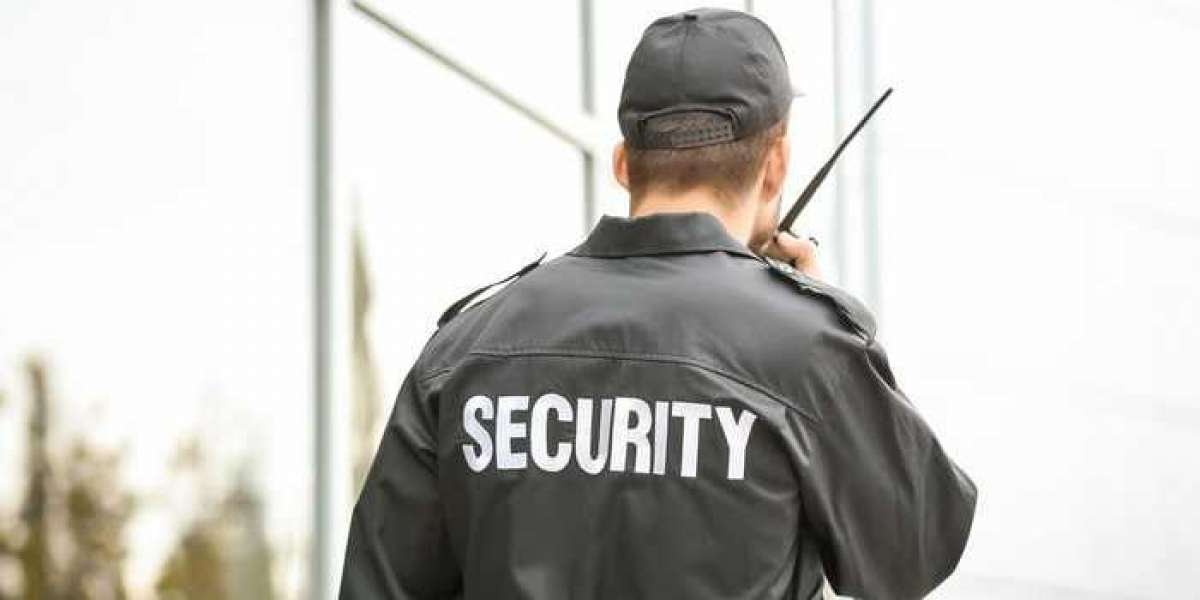Hotels are bustling environments that welcome travelers from all walks of life, creating a unique blend of needs and security challenges. The hotel industry prioritizes the comfort, safety, and overall experience of its guests. For many hotels, the solution to maintaining a safe and welcoming atmosphere lies in employing dedicated security personnel. Hotel security guards play a crucial role in preventing theft, minimizing property damage, and ensuring the safety of guests and staff alike. Here, we’ll take a closer look at the primary duties of hotel security guards in safeguarding the premises and maintaining order.
Deterrence Through Presence:
One of the most effective ways hotel security guards prevent theft and property damage is through their mere presence. When visible, security guards act as a deterrent to potential wrongdoers who might otherwise see the hotel as an easy target for theft or vandalism. The sight of a uniformed guard sends a clear message: the premises are being actively monitored and protected. Criminals are more likely to think twice before attempting any illegal activity when they know a security guard is nearby, reducing the chances of an incident occurring.
Security guards in hotels often patrol the property, particularly during night hours when unauthorized activity may be more likely. Visible patrols not only reassure guests but also create a watchful environment that discourages mischief and ensures staff members feel supported.
Monitoring Surveillance Systems:
Modern hotels invest in comprehensive surveillance systems, including CCTV cameras, motion detectors, and alarm systems. However, these systems alone aren’t enough; they require vigilant monitoring and a human element to respond to potential threats. Hotel security guards monitor these systems, identifying suspicious behavior in real time and responding accordingly.
Watching surveillance footage allows guards to detect signs of theft, unauthorized access, and vandalism as they happen. In larger hotels, guards may work in teams, with some guards patrolling the property while others monitor surveillance feeds. Quick response to alarms and unusual activity helps prevent property damage, recover stolen items, and ensure the safety of all hotel patrons.
Access Control and Entry Point Supervision:
Hotels often have multiple entry points, from front lobbies to staff-only areas. To maintain security, it’s essential to control access to these areas. Security guards monitor entry points, ensuring that only authorized personnel and guests can enter certain parts of the hotel. They verify guest identities, conduct random checks, and maintain visitor logs as necessary, reducing the likelihood of theft or unauthorized activity.
Access control is especially important in high-risk areas, such as storage rooms or equipment rooms, where valuable assets are stored. By supervising these entry points, security guards protect both the hotel’s assets and the safety of guests and employees. Many guards also coordinate with hotel management to ensure that access protocols are up-to-date and effective.
Responding to Suspicious Activity:
Hotel security guards are trained to recognize suspicious activity that could indicate theft or vandalism. They are observant, equipped with a keen sense for potential threats, and capable of assessing situations quickly. For example, if a guest appears to be loitering in a restricted area or repeatedly attempts to access secure parts of the hotel, a security guard can intervene to investigate further.
In situations where suspicious behavior is identified, guards may engage in non-confrontational questioning or employ other techniques to determine the intent of the individual. With their training, security guards can often de-escalate potential problems before they lead to more serious incidents, preventing both theft and damage.
Emergency Response and Coordination:
Emergencies in hotels can range from theft and property damage to natural disasters and medical emergencies. Security guards are trained to respond quickly and appropriately to various emergencies, maintaining calm and ensuring the safety of guests and staff. When theft or vandalism occurs, guards immediately contact law enforcement, secure the area, and provide valuable information for investigations.
A well-trained hotel security team can prevent additional damage during a crisis by following established protocols, coordinating with local authorities, and communicating with hotel management. In many cases, the quick response of security guards can prevent further property damage or theft and may even save lives.
Enforcing Hotel Policies and Regulations:
Many incidents of property damage and theft result from guests or visitors violating hotel policies. Hotel security guards are responsible for enforcing rules and regulations, from smoking restrictions to noise complaints and guest conduct policies. By maintaining a safe, respectful environment, guards reduce the likelihood of destructive behavior that could damage property or lead to confrontations.
Security guards work closely with the hotel management team to stay informed on policies and any updates. They play a proactive role by reminding guests of the rules when necessary, addressing potential issues early, and protecting the hotel’s reputation as a safe and peaceful establishment.
Supporting a Positive Guest Experience:
In addition to their primary duties, hotel security guards are increasingly being trained to provide exceptional customer service. Friendly, approachable security personnel help create a welcoming atmosphere while maintaining security standards. By assisting guests with directions, answering questions, and even escorting guests to their rooms when needed, guards contribute to a positive hotel experience.
Security guards who engage with guests in a helpful manner are better able to assess unusual behavior and prevent potential incidents. This balance between hospitality and vigilance makes hotel security guards invaluable assets, providing reassurance to guests and staff alike that their safety is in good hands.
Regular Inspections and Maintenance Checks:
A critical, often overlooked, aspect of preventing property damage in hotels is the regular inspection and maintenance of hotel facilities. Security guards perform daily checks of the premises to identify potential hazards, such as faulty locks, broken windows, and malfunctioning equipment. By reporting these issues promptly, security guards help prevent situations where vulnerable areas of the hotel could be exploited for theft or vandalism.
During these inspections, guards also ensure that fire exits and emergency equipment, such as alarms and extinguishers, are functioning properly. This proactive approach minimizes safety risks, helps maintain a high standard of property upkeep, and reduces the likelihood of damage.
Documenting Incidents and Reporting:
Hotel security guards are responsible for documenting all incidents of theft, damage, and suspicious behavior. Accurate and thorough reporting helps the hotel management team understand security issues and make informed decisions to improve security protocols. Reports may include descriptions of the individuals involved, details of the incident, and any actions taken by the guard.
This documentation serves as a valuable resource for the hotel, helping to address recurring security issues and supporting legal proceedings when necessary. Security guards’ reports ensure that theft and property damage incidents are handled systematically, fostering an accountable and organized approach to hotel security.
Final Thought:
Hotel security guards serve as the front line in the fight against theft and property damage, ensuring that guests and staff feel safe and secure. Their presence not only deters potential criminals but also helps maintain a sense of order throughout the property. By actively monitoring entry points, handling emergencies, conducting inspections, and documenting incidents, security guards fulfill an essential role in hotel security. Ultimately, their dedicated service protects hotel assets, enhances the guest experience, and upholds the reputation of the establishment as a safe, welcoming environment.













